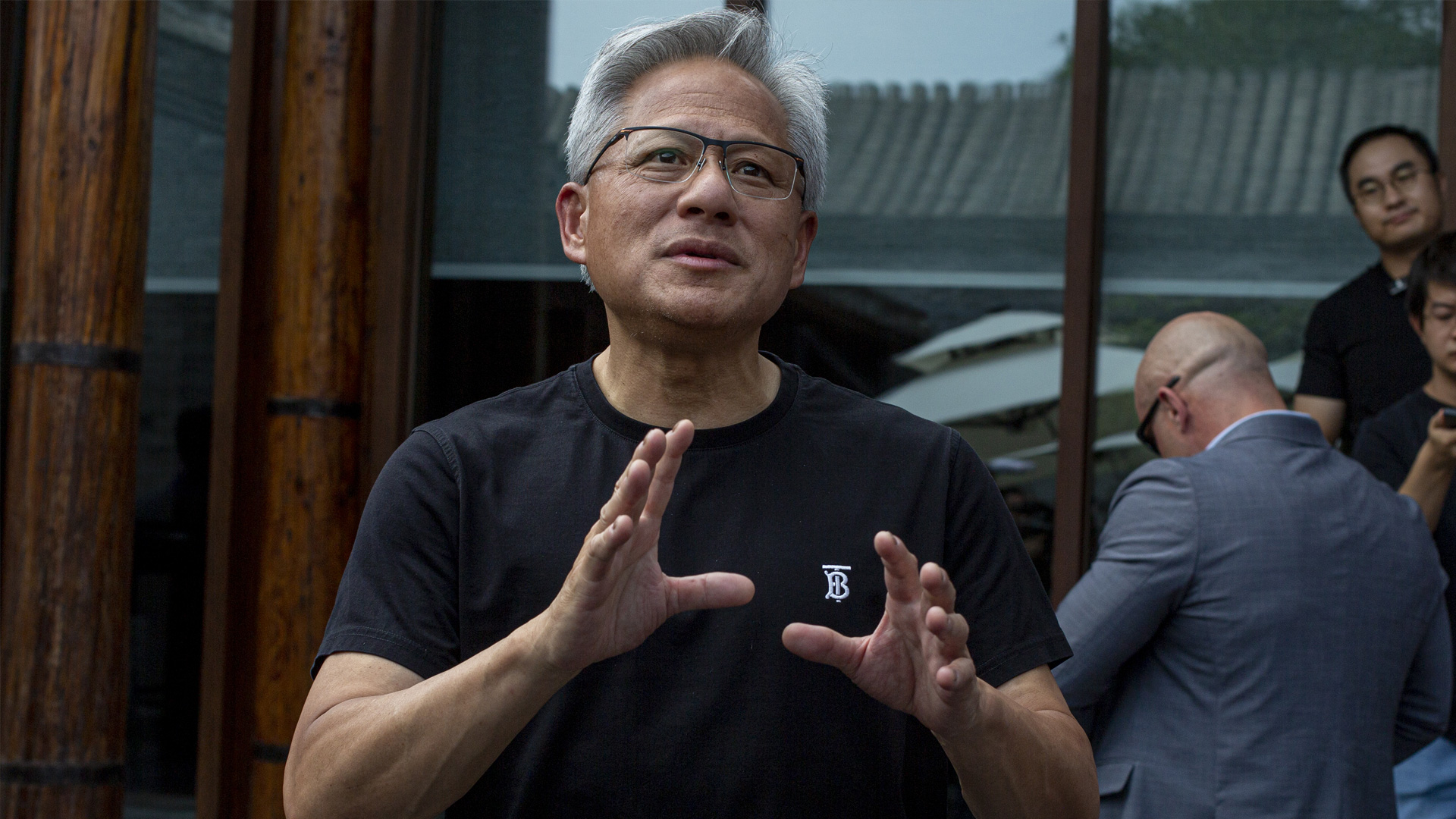Nvidia promises its $100 billion OpenAI deal won't impact GPU supply — 'we will continue to make every customer a top priority'
Pinkie promise...

Nvidia wants to make it clear that, despite any deals it's done with certain companies to provide future hardware, it will still ensure all customers get access to next-generation GPUs, as first reported by Bloomberg. This follows the announcement of a $100 billion Nvidia investment in OpenAI, which will see the chip giant give OpenAI money, so that it can purchase Nvidia's GPUs in a circular strategy that has buoyed both companies since the announcement was made.
"Our investments will not change our focus or impact supply to our other customers--we will continue to make every customer a top priority, with or without any equity stake," an Nvidia spokesperson told Toms Hardware in a statement.
That may be of some comfort to Nvidia's other customers, but it's also likely to be a strategy to placate them into not looking elsewhere. Nvidia became the world's most valuable company in recent years because of the scramble to buy its cutting-edge GPUs in order to power a new generation of "AI factories" and AI training and inference data centers. But that hasn't stopped those same companies from looking for alternative sources lest Nvidia itself become a bottleneck, through chip supply issues or granting favour to one company over another.
Other major chip firms like Nvidia competitor AMD do offer their own AI hardware. It might not be as impressive as Nvidia's and lacks the CUDA ecosystem, which has helped give Nvidia such a near-monopoly in the professional GPU space for many years, but its hardware is capable nonetheless. If Nvidia were unable to meet its commitments, or indeed appears to be favoring one company over another, customers may start to look for alternative solutions in order to give themselves more control over their AI supply chain.
To that end, Microsoft, Amazon, Google, and others are all developing their own AI-accelerating hardware to give them some independence from Nvidia, even if it seems unlikely any of them will be able to offer a competitive product to Nvidia's GPUs any time soon. Chinese firms have also been making major efforts to untether themselves from Nvidia amidst ongoing trade negotiations and tariff talks with the United States.
Other Nvidia investments, which are likely to give other actual or potential customers pause, include the Intel deal, which will see Nvidia work together with the CPU giant to fabricate new chips that combine their hardware into a single chip. Nvidia's recent investment and pseudo-takeover of GPU networking hardware firm Enfabrica also smacks of Nvidia shoring up its near-monopoly in the AI hardware space.
But with the world rushing to develop AI infrastructure as fast as possible, there seems likely to be plenty of scope for competition to find purchase. AMD is one such potential alternative, but Qualcomm is working on its own accelerators, and if Chinese innovation in the space has shown us anything in the past couple of years, it's that they can surprise with their speed and capabilities. They may well do so once again if they can solve certain bottlenecks.
Get Tom's Hardware's best news and in-depth reviews, straight to your inbox.
Follow Tom's Hardware on Google News, or add us as a preferred source, to get our up-to-date news, analysis, and reviews in your feeds. Make sure to click the Follow button!

Jon Martindale is a contributing writer for Tom's Hardware. For the past 20 years, he's been writing about PC components, emerging technologies, and the latest software advances. His deep and broad journalistic experience gives him unique insights into the most exciting technology trends of today and tomorrow.
-
Marlin1975 So invest in a company that uses that money to buy your own goods.Reply
Both companies announce this and stock price goes up.
Infinite money loop... at least till the bubble pops. -
wussupi83 This all reminds me of Intel circa 10 years ago. Large market share. AMD around but not making waves. Investing in complimentary hardware companies. Software being better optimized for Intel hardware. Uncertainty if ARM on the horizon would impact their business and how much.Reply -
SonoraTechnical I always trust billionaires to act in the consumers best interest, don't you? I'm certain we'll see a windfall of competitive prices in the prosumer graphics card market. Three AI giants working together, investing in each other's companies (Oracle, OpenAI, nVidia)... 100 billion here, 300 billion there... chump change... No collusion... No need to alarm the Feds... We're going to be protected.Reply -
ingtar33 The incestuous silicon valley ouroboros continues... get this.Reply
OpenAI pledged 300billion to build out a massive datacenter with Oracle, this drove oracle's stock prices through the roof
problem is OpenAI doesn't have 300billion nor the means to make it
Oracle then pledged to buy 200billion in Nvidia gpus for their AI datacenter they're building for OpenAI, driving NVidia stock through the roof.
NVidia then pledges 100billion to Open AI to help them get their database project off the ground, driving OpenAI valuation from 40billion to 500billion with no money changing hands, it's a miracle!
It's a giant ouroboros. No money is actually changing hand but the value for all 3 goes up!